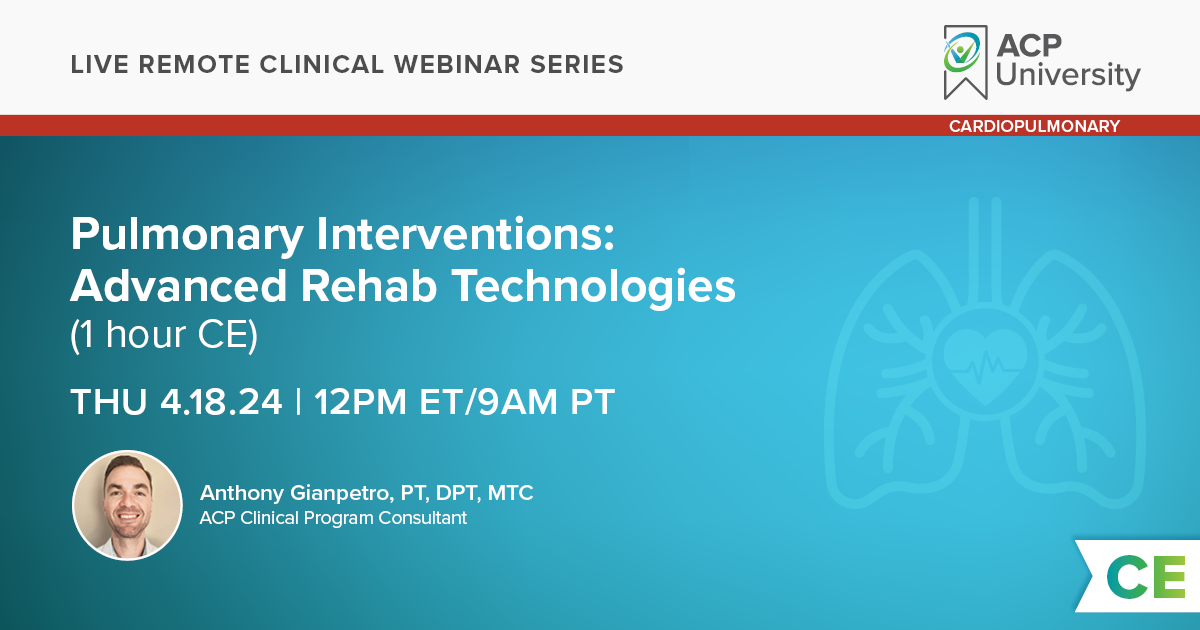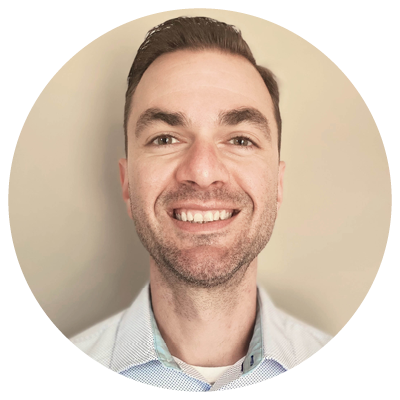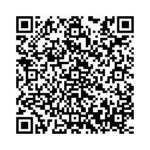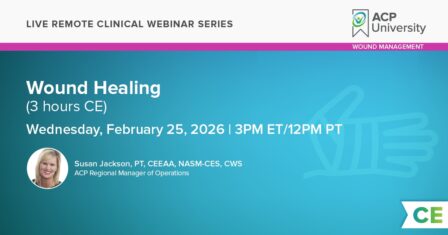Pulmonary Interventions – Advanced Rehab Technology

Date and Time
Location
Virtual Event
About this course:
Cardiopulmonary disease can affect all aspects of health and quality of life, including functional mobility and ADLs/IADLs. Advanced rehab technologies and exercise can be incorporated into pulmonary rehabilitation to optimize patient outcomes. This one-hour intermediate level course for PT/PTAs and OT/OTAs is part of a series of Accelerated Clinical Practice courses. Through instruction and lab, this course provides information on how to incorporate electrical stimulation, ergometry/cycling, virtual reality, and dynamic standing balance systems into exercise within an evidence-based pulmonary rehabilitation program.
Instructor:

Enroll Now
Please note: You will not be able to register for webinars without an active
ACP University (LMS) account.
Existing Account
Auto-Enrollment
For the best experience, download the Adobe Learning Manager App and use the below QR code to automatically enroll anytime leading up to the start of the course.

Existing Account Enrollment Request
If you already have an account but can’t scan the QR code,
complete our form and we will add you to the course.
Requests must be received 24 hours prior to the course’s scheduled start.
ACP University Account Request
An active ACP University (LMS) account is required to register for this course. If you don’t have an account, please reach out to your Clinical Program Consultant for your facility-specific learner link. If you don’t recall who your CPC is, reach out to us at [email protected].
Related Events

February 25, 2026
This three hour course is intended to provide clinicians with the most current in-depth information about chronic wounds and their treatment. The course materials and clinical protocols presented are evidence-based and oriented to immediate clinical application for standard and skilled therapy for chronic wound healing. The lab demonstration will reinforce concepts and techniques integrating biophysical agents to accelerate wound healing and positively impact participation, activity, and functional performance.

February 26, 2026
Aerobic Exercise for Aging Adults
This one and one half hour intermediate level course for PT/PTAs and OT/OTAs on aerobic exercise for aging adults is part of a series of Accelerated Clinical Practice courses. Through a combination of didactic lecture and lab demonstrations, this course provides the individual attention necessary for clinicians to understand how to apply optimal aerobic exercise training parameters to aging adults including those with specific diagnostic conditions.
